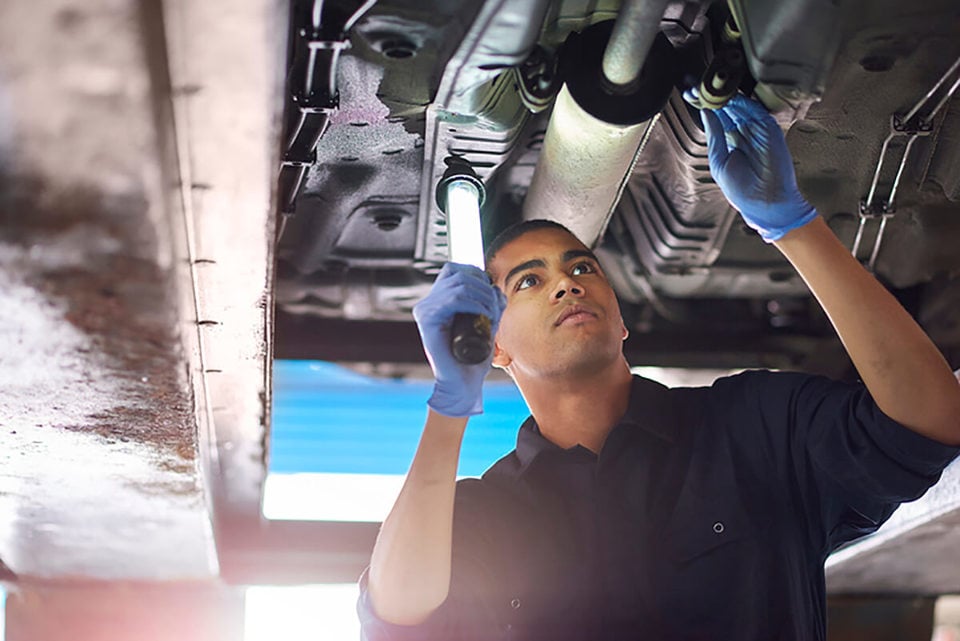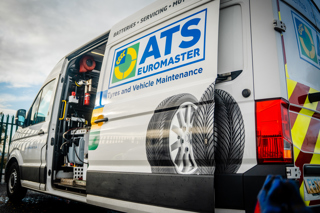Fleets have said that the writing was on the wall for Rivus Fleet Solutions when it slashed its network of garages after losing a major contract with BT.
Former head of customer relationship management at Rivus Fleet Solutions, Nicola Carter, told Fleet News at 10 that problems for the business began last year, when it cut its garage network in half.
“That's when the problems all started,” she said. “They retained the garages that were for the Met police contract and then a few dotted around. That was the moment that it caused problems for industry around getting work into garages.”
Rivus announced a major restructure in an effort to cut costs in July 2023, after struggling to replace business lost from losing a fleet maintenance deal with BT Group.
It closed 48 of its light commercial vehicle (LCV) garages, cutting its existing network by more than half, from 78 to just 30 sites including a heavy goods vehicle (HGV) network.
At the time, it said its decision to close so many of its garages was to reduce a “heavy cost base” relating to legacy business systems, ageing garage facilities, and a “complex people structure”.
While maintaining a reduced network in what it described as “strategic locations”, garages in the Greater London area became dedicated to solely providing mission-critical service, maintenance, and repair (SMR) services to the Metropolitan Police Service from November, last year.
After administrators PricewaterhouseCoopers (PwC) were appointed by Rivus Fleet Solutions on Friday, June 21, the majority of its assets were sold to the Met, safeguarding 165 jobs and allowing the continuation of the delivery of crucial fleet services to the force.
Some 55 members of staff, however, were immediately made redundant.
The sale had no impact on Rivus’ sister company, Rivus HGV, which has since changed its name back to Pullman Fleet Solutions.
Carter, who left Rivus more than a year ago to become customer relationship director at Zenith, paid tribute to the staff.
“There were some really great people left in that business and I hope they were either able to join the Met or find new roles,” she said.
PwC confirmed to Fleet News that it was currently working to realise the remaining assets in the estate and supporting in transitioning those services to the Met, as well as helping remaining customers to transition their services to alternative providers.
A small workforce has been retained to assist the administrators during this period, it said.
Rivus Fleet Solutions provided SMR for National Grid. Head of fleet Lorna McAtear, appearing alongside Carter on Fleet News at 10, said it was sad to see the Rivus business fail after such a long history in the industry.
However, she added that after cutting its garage network by half last year, its demise was “inevitable”.
“Lots of people exited when Rivus first started closing those workshops,” she explained.
“We went out to tender and not everybody out there could do what we needed with the type of fleet that we had so we bided our time, which is why I was still a customer.”
However, when the administrators were called into Rivus Fleet Solutions, McAtear explained that, while it had been a challenge, she was able to find another supplier quickly.
“We kind of hoped Rivus would survive, because they were good at what they did,” she added.
“They'd got that broad spectrum… and we'd spent years working with them.”
Fleet director at the AA, Duncan Webb, agreed with McAtear that the writing was on the wall for Rivus when it cut its network.
Like McAtear, he also has concerns about what this says about SMR provision for the fleet industry.
“There’s a gap in the market,” he explained. “There is hardly any (suppliers) where they vertically integrate maintenance provision, they just rely on partners to do it and that’s where Rivus were good.
“They owned the management company, and they owned a large chunk of the service delivery underneath that management company, and the market has lost that.”
He added: “I still feel there’s a massive space for anybody who wants to get back into that space, to do a real vertical integration.
“You could quite easily open 20 workshops up and down the country that could deliver outstanding service to big fleets across the UK.”
“It’s a human impact as well,” said Paul Hollick, chair of the Association of Fleet Professionals (AFP). “The industry does need more workshops. The industry does need more HGV drivers... there is just not enough skilled workforce in the automotive sector full stop.”
Hollick is calling on the new Government to focus on driving apprenticeships to help bolster recruitment in the industry.
McAtear told Fleet News at 10: “We need Government to take it seriously in helping us with apprenticeship schemes and skills.
“Fleet managers, technicians, automotive does not feature in schools, we need to find a way of getting it in there.”

























Login to comment
Comments
No comments have been made yet.